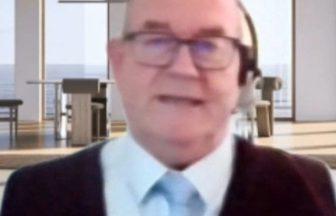NHS Lothian chiefs have been forced to apologise to a patient after failing to warn them that their pain medication was addictive.
The health board has been rapped by the Scottish Public Services Ombudsman (SPSO), a government watchdog that holds public authorities to account, after complaints from a patient who received neurosurgery.
The patient, who can only be referred to as ‘C’, complained to the SPSO that the surgery they received under the care of NHS Lothian was inadequate, and they had not been able to fully consent to the surgery due to time pressure and a lack of information provided by healthcare professionals.
Patient C also complained that the health board’s management of their pain medication was unreasonable, and that they had not been warned of the potential for opiate pain relief to become an addiction.
Now, the SPSO has said it could find no records showing that C was informed of the benefits and risks of surgery prior to the operation, nor could it find evidence C was informed that the pain medication was addictive.
A report from the SPSO reads: “The board [NHS Lothian] responded that the surgery had been performed correctly and that a lengthy consultation had been held with C prior to surgery by the operating consultant neurosurgeon (a surgeon who specialises in surgery on the nervous system, especially the brain and spinal cord).
“We took independent advice from a consultant neurosurgeon. We found that the surgery had been performed to a reasonable standard and that the board’s management of C’s pain medication was also reasonable.
“However, we identified a lack of records illustrating any discussion with C about the potential benefits, risks or complications of surgery prior to the operation.
“We also identified a lack of records illustrating any discussion with C regarding the potential for opiates to become habit-forming.
“In the absence of such records we were unable to say whether C received appropriate information. Therefore, on balance, we upheld both complaints.”
When asked if it was standard practise to warn patients that opiates are addictive, and if the patient has been offered help and support for their new addiction, Dr Tracey Gillies, medical director at NHS Lothian, said: “We apologise for the failings in this case and have issued a written apology to C for the distress that was caused.
“We are working to improve the documentation of discussions with patients, which includes the potential risks and complications of surgery and for pain-killing medications to become habit-forming.”
By local democracy reporter Joseph Anderson
Follow STV News on WhatsApp
Scan the QR code on your mobile device for all the latest news from around the country


 iStock
iStock

























